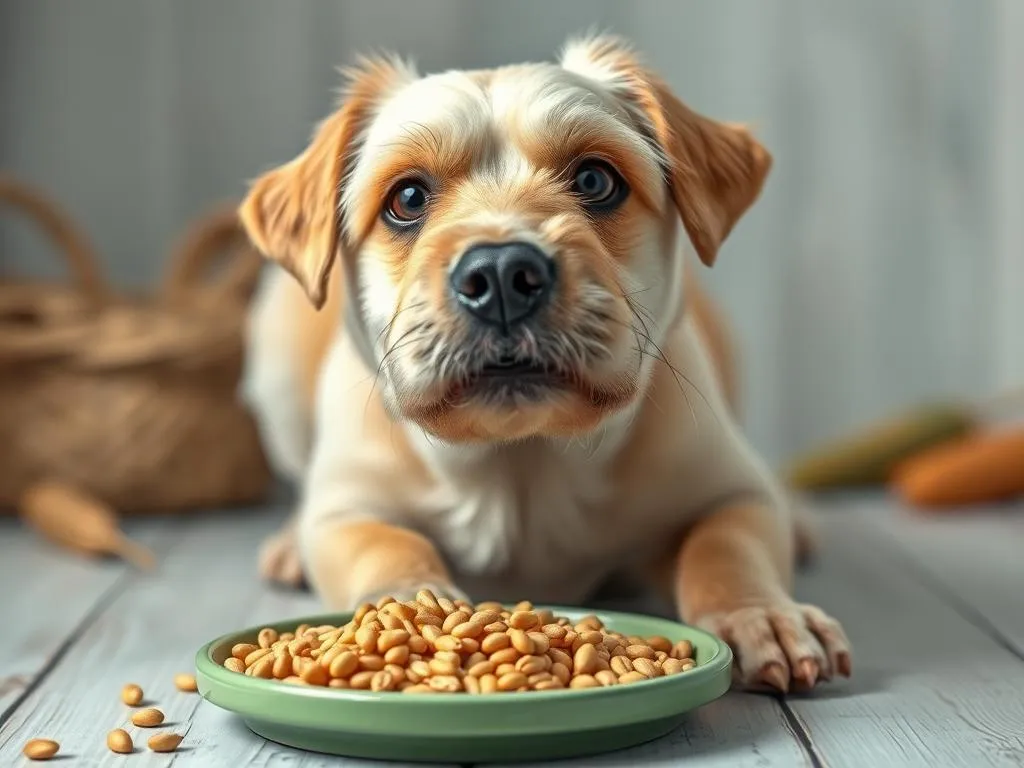
The subject of canine nutrition has sparked considerable debate among pet owners, veterinarians, and pet nutritionists alike. One of the most contentious topics is whether or not dogs need grain in their diet to maintain optimal health. Understanding the role of grains in a dog’s nutrition is essential for making informed decisions about their diet. This article delves into the fundamentals of canine nutrition, the rising trend of grain-free diets, and the implications of including or excluding grains in your dog’s meals.
Understanding Canine Nutrition
Basic Nutritional Needs of Dogs
Like humans, dogs require a balanced diet to thrive. Their nutritional needs can be categorized into three main macronutrients:
- Proteins: Essential for growth, maintenance, and repair of tissues. Proteins are made up of amino acids, some of which are crucial for a dog’s health.
- Fats: Provide a concentrated source of energy and help absorb fat-soluble vitamins. Fats also support healthy skin and coat.
- Carbohydrates: While not strictly essential, carbohydrates provide a source of energy and assist in digestive health.
In addition to these macronutrients, dogs also need a variety of vitamins and minerals to ensure proper bodily functions, including immune response, bone health, and overall vitality.
Role of Grains in a Dog’s Diet
Grains like rice, wheat, corn, and barley are common ingredients in many commercial dog foods. They serve several important roles:
- Energy Source: Grains are a source of carbohydrates, which are a primary energy source for dogs.
- Fiber: Whole grains contain fiber, which is beneficial for digestive health. Fiber aids in maintaining bowel regularity and can help prevent obesity by promoting a feeling of fullness.
- Vitamins and Minerals: Grains can provide essential nutrients, including B vitamins and minerals like iron and magnesium.
Understanding these benefits helps to clarify the ongoing discussion about whether dogs need grain in their diet.
The Grain-Free Diet Trend
Rise of Grain-Free Dog Foods
In recent years, grain-free dog foods have surged in popularity, prompting many pet owners to reconsider traditional canine diets. The appeal of grain-free options often stems from the perception that they may be healthier or more natural for dogs.
Reasons pet owners may choose to eliminate grains include concerns about allergies, digestive issues, and the belief that dogs are primarily carnivorous animals that thrive on protein-rich diets.
Potential Benefits of a Grain-Free Diet
Many proponents of grain-free diets argue that they offer several benefits, including:
- Weight Management: Grain-free dog foods may be lower in calories and carbohydrates, assisting in weight management for overweight dogs.
- Digestive Health: Some dogs may experience improved digestion when grains are removed from their diet, particularly those with sensitivities to specific grains.
- Allergen Reduction: For dogs with allergies or skin sensitivities, a grain-free diet may help reduce allergic reactions.
However, it’s crucial to critically evaluate these claims and consider the potential downsides of a grain-free diet.
Do Dogs Need Grains?
Scientific Perspective
Veterinary and nutritional studies provide a mixed perspective on the necessity of grains in canine diets. Research indicates that while dogs can digest grains, their ability to process carbohydrates is not as efficient as that of herbivores. However, this does not imply that grains are inherently harmful or unnecessary.
Dogs have evolved alongside humans and have adapted to consume a variety of foods, including grains. Their digestive systems are capable of processing grains, and when included in moderation, they can contribute positively to a dog’s overall nutrition.
Expert Opinions
Veterinarians and pet nutritionists often emphasize the importance of individualized diets based on a dog’s breed, age, and specific health conditions. Many experts argue that while some dogs may thrive on grain-free diets, others may benefit significantly from the inclusion of grains.
Dr. John Smith, a veterinary nutritionist, states, “While some dogs may have sensitivities to specific grains, the majority can incorporate grains into their diets without any issues. It’s about finding the right balance.”
The Risks of a Grain-Free Diet
Nutritional Deficiencies
One of the main concerns associated with a grain-free diet is the potential for nutritional deficiencies. Removing grains without replacing them with other nutritious ingredients could lead to a lack of essential nutrients, such as:
- Fiber: Important for digestive health.
- B Vitamins: Essential for energy metabolism and neurological function.
- Minerals: Critical for overall health, including bone density and immune function.
Symptoms of deficiencies can range from lethargy and poor coat condition to more severe health issues if left unaddressed.
Link to Health Issues
Studies have suggested a potential link between grain-free diets and specific health problems, including canine dilated cardiomyopathy (DCM). DCM is a serious heart condition that has been observed in dogs consuming certain grain-free diets high in peas, lentils, and potatoes.
Veterinarians strongly recommend consulting with a professional before making any significant dietary changes to ensure that your dog’s nutritional needs are met and to avoid potential health risks.
Making Informed Decisions for Your Dog
Evaluating Dog Food Labels
When selecting dog food, it’s essential to evaluate the ingredients carefully. Look for:
- Whole Grains vs. Processed Grains: Whole grains like brown rice and barley are more nutritious than processed grains. They retain more nutrients and fiber.
- Protein Sources: Ensure that protein sources are high-quality and sufficient for your dog’s needs.
- Additives: Be wary of artificial preservatives, colors, and fillers.
Understanding these components can help you make informed decisions about whether your dog needs grain in their diet.
Tailoring Your Dog’s Diet
Every dog is unique, and their dietary needs may vary significantly. Consider working with a veterinarian or a pet nutritionist to create a tailored diet plan that considers your dog’s specific requirements.
Some factors to consider include:
- Age: Puppies, adults, and senior dogs have different nutritional needs.
- Breed: Certain breeds may have unique dietary requirements.
- Health Issues: Dogs with specific health conditions may require specialized diets.
Alternatives to Grains
Grain-Free Carbohydrate Sources
If you choose to avoid grains, there are several alternative carbohydrate sources that can provide similar benefits:
- Sweet Potatoes: Rich in vitamins and fiber, sweet potatoes are a nutritious alternative.
- Peas: Packed with protein and fiber, peas can be a beneficial addition to a grain-free diet.
- Legumes: Beans and lentils can provide protein and fiber while being grain-free.
These alternatives can help ensure your dog receives the necessary nutrients while adhering to a grain-free diet.
Homemade Dog Food Considerations
For pet owners interested in creating homemade dog food, it’s essential to ensure a balanced diet without grains. Here are some tips:
- Consult with a Professional: Work with a veterinarian or pet nutritionist to create a nutritionally balanced recipe.
- Include Various Food Groups: Incorporate proteins, vegetables, and alternative carbohydrates to meet all nutritional requirements.
- Monitor Nutritional Balance: Regularly assess your dog’s health and adjust the diet as necessary to ensure it remains balanced and nutritious.
Conclusion
The question of whether dogs need grain in their diet remains a topic of debate among pet owners and professionals alike. While grains can provide valuable nutrients and benefits, they are not universally required for all dogs. Individual dietary needs may vary based on a dog’s breed, age, and health status.
As such, it is essential to consult with veterinary professionals when making dietary decisions for your furry friend. A balanced, well-considered diet will help ensure your dog remains healthy and happy throughout their life.
FAQs
Can dogs be allergic to grains?
Yes, some dogs can be allergic to specific grains, leading to skin irritations or digestive issues. It’s important to monitor your dog for any adverse reactions when introducing new foods.
What are the signs my dog is lacking in nutrients?
Signs of nutrient deficiency may include lethargy, poor coat condition, weight loss, and gastrointestinal issues. Regular veterinary check-ups can help identify these problems early.
How do I transition my dog to a new diet safely?
To transition your dog to a new diet, gradually mix increasing amounts of the new food with their current food over a week to ten days. This process helps minimize digestive upset.
Are there any specific breeds that require grain in their diet?
While no specific breed universally requires grains, some breeds may thrive better with certain dietary compositions. Always consult with a veterinarian to address your dog’s unique needs.









